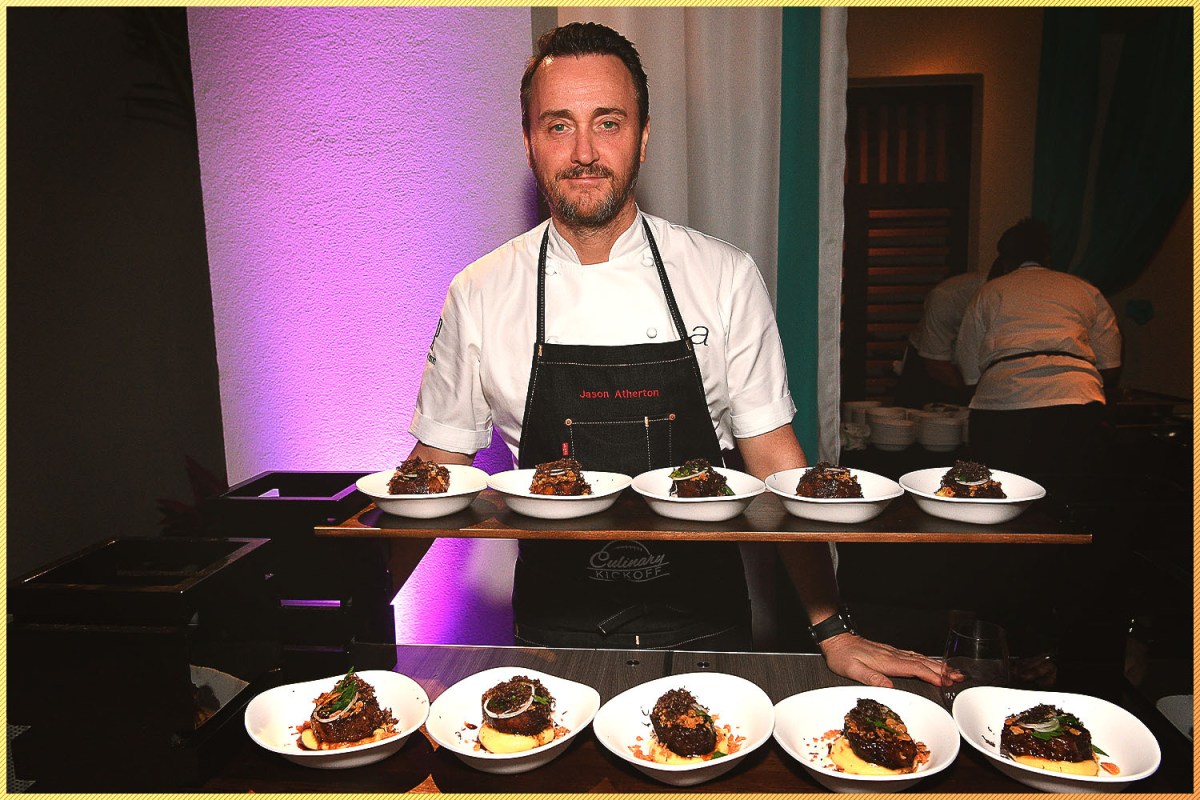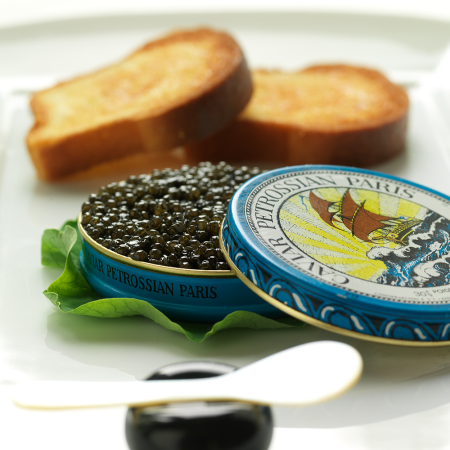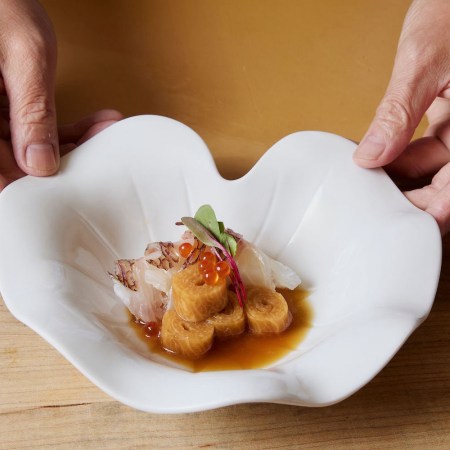“Absolutely I had anxiety attacks. It still does give me anxiety attacks,” admits the chef Jason Atherton. He knows that’s surprising to many people. Sure, as anyone who has seen last year’s critically-acclaimed Philip Barantini-directed film Boiling Point (it’s on Netflix), or seen the FX series The Bear, might have gleaned, cheffing is seriously high stress work. But, you know, this is Jason Atherton, one-time executive chef under Gordon Ramsay — so steeled in a high pressure environment — before going on to win Michelin stars and open restaurants from London to the Philippines, to Dubai and New York. Surely, he’s well above the fray?
“Actually, in one sense there’s more stress on chefs like me than ever before because right now we’re going through a staffing crisis, rising inflation, rising food prices, customers who don’t want to pay more — which I totally understand – and there’s stress not just in the work environment but, more broadly, the mental challenges to deal with what’s been going on over the last decade [in terms of changes in the industry],” says Atherton. “I think there’s a misjudgment in understanding how important hospitality is to national economies. But I don’t see how people in the industry are going to cope with all that’s going on now.”
It’s the stress of the job — not just its pace and its hours, but its tight margins — that, Atherton argues, piles on the pressure. Small wonder that a 2019 survey commissioned by Nestle Professional found that 81% of chefs have experienced poor mental health during their careers, with half saying not enough is being done to support their wellbeing in the workplace. The top factors contributing to their stress are staff shortages, lack of time and limited budgets — even the lack of daylight in many kitchens.
Following one 2021 study revealing that half of all work-related ill health cases in the restaurant business are accounted for by stress, depression or anxiety, but that 46% of sufferers wouldn’t feel talking about it with their colleagues, the pioneering UK-based The Burnt Chef Project — established three years ago to eradicate the mental health stigma with the hospitality industry — has just published a new guide for employers in the restaurant business advising on how to tackle work-related stress.
“[People forget but] the fundamentals of [any restaurant] is to be a commercial entity that buys something to sell at a profit. If you don’t make a profit it’s a vanity project. Unless you have a personal fortune you’re likely in no position to run a vanity project,” Atherton explains. “We tell our staff that they have to take the business side of the restaurant very seriously or they’re not the right person for us. There are so many chefs who say they don’t want to turn tables or who only want to work three days a week. Well, you know what, fucking good luck to you. Because if you find that magic number give me a call and I’ll come and join you.”
It’s pulling off profitability that, he says, leads so many top-flight chefs to develop some kind of obsessive compulsive disorder, a pattern of behavior that Atherton recognizes in himself, and tries to use to his professional advantage.
“The problem is you’re constantly pushing for the ideal of perfection — which doesn’t really exist in a restaurant. You can have as many systems in place that you like but there are too many moving parts, from the fact that every bit of fish or meat is different, which means recipes will vary, to, say, having different people laying up the tables,” he explains. “But having the ability to strive for that perfection — and that is the job — is tricky because in the end what it pulls out of that person is making them obsessive about stuff. I drive my wife mad because if I get my teeth into something — golf, for example, or boxing — I get deep into it.”
Still, things aren’t as bad as they used to be, Atherton reckons. He doesn’t want a medal for it, he laughs, but for years he worked 18 hours a day for seven days, and for long time after attaining Michelin status dropped only to six days. “It was relentless,” he recalls. “Lunch went into dinner, then it was a few hours at home, then back to prep, prep, prep and then lunch going into dinner again… That [way of living] was what everybody did. It was the industry norm. But that couldn’t exist today. And shouldn’t. The industry has changed a lot, even if there’s [still] this idea that chefs are all nutcases and when they’re not at work they’re doing 12 grammes of charlie and 50 pints and running round the city like hyenas.”
These days cheffing has better awareness of the need for some semblance of work/life balance, that burning brightly for a few years before just burning out is no career path. Hours are better now, as are benefits and pay. But hours are still long — a survey by the British trade union Unite in 2017 concluded that 44% of respondents in the industry worked between 48 and 60 hours a week, with 14% in excess of that, with 78% of chefs reporting an accident at work resulting from fatigue. And low wages remain the most common reason why people have left the industry, according to a UC Berkeley Food Labor Research Center study last year. Over half of chefs reported getting by on painkillers, 41% on stimulants, 27% on alcohol.
So it’s hardly surprising that people are warier about moving into restaurant work at all — managing, waiting or cooking — given the historic challenges to one’s personal life (i.e. not having one): according to the US National Restaurant Association, 70% of restaurants nationwide are understaffed and scrambling to attract employees, leading some to cut business hours, scale back service or, unfortunately, push employees harder to take up the slack. A third of hospitality industry employees want to get out. There’s a cost to all this — literally — and, of course, inevitably that’s passed on to the diner.
“[As a result] the idea of going out for a Michelin star lunch for $40 is long gone,” says Atherton. In other words, an industry that is slowly getting better for the people in it, is having to pass the costs of being better down the line. All the same, Atherton says, diners should perhaps pay more mind as to the intensity of action behind the scenes that have brought that dish to their table.
“Well, 99.9% of customers are lovely and appreciate all the hard work that goes into their meal. Every now and then you get the odd one who has a complete disregard for the industry, for how hard people work,” says Atherton, who once, when faced with a diner threatening to complain to Michelin, duly provided him with all the right contact details. “We’re all human and people make mistakes — they spill a bit of wine or overcook your steak. Shit happens. And if you don’t understand that then I don’t understand you.”
Join America's Fastest Growing Spirits Newsletter THE SPILL. Unlock all the reviews, recipes and revelry — and get 15% off award-winning La Tierra de Acre Mezcal.
























